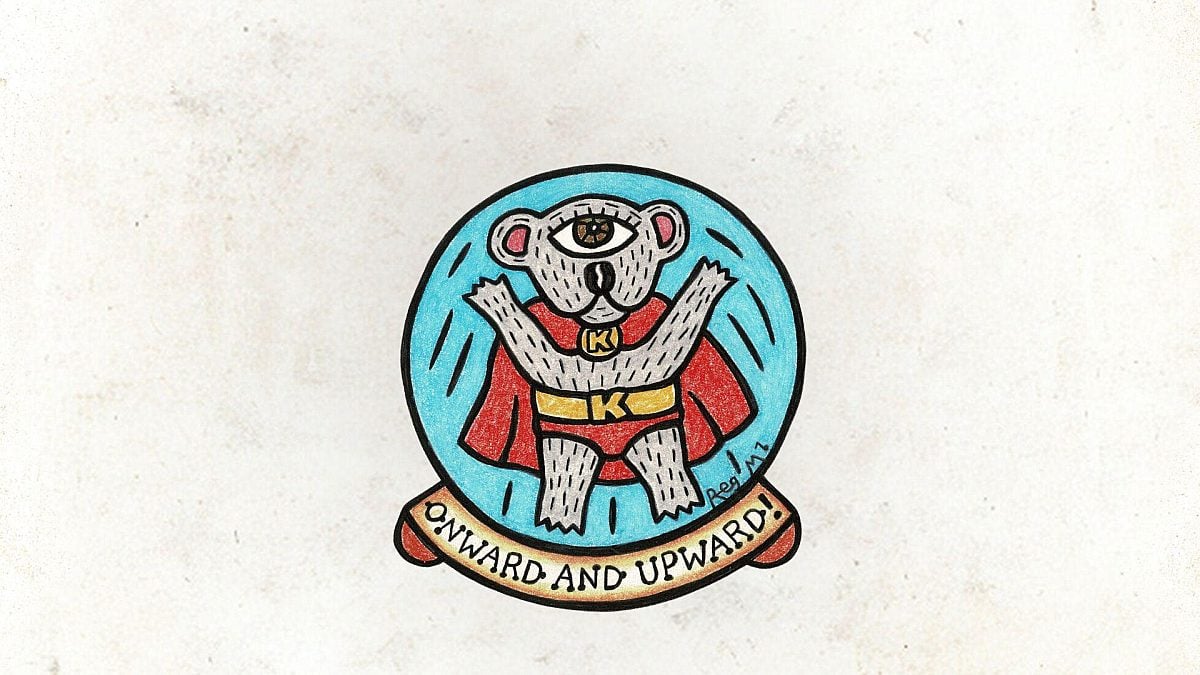
Wilderness Journal #030
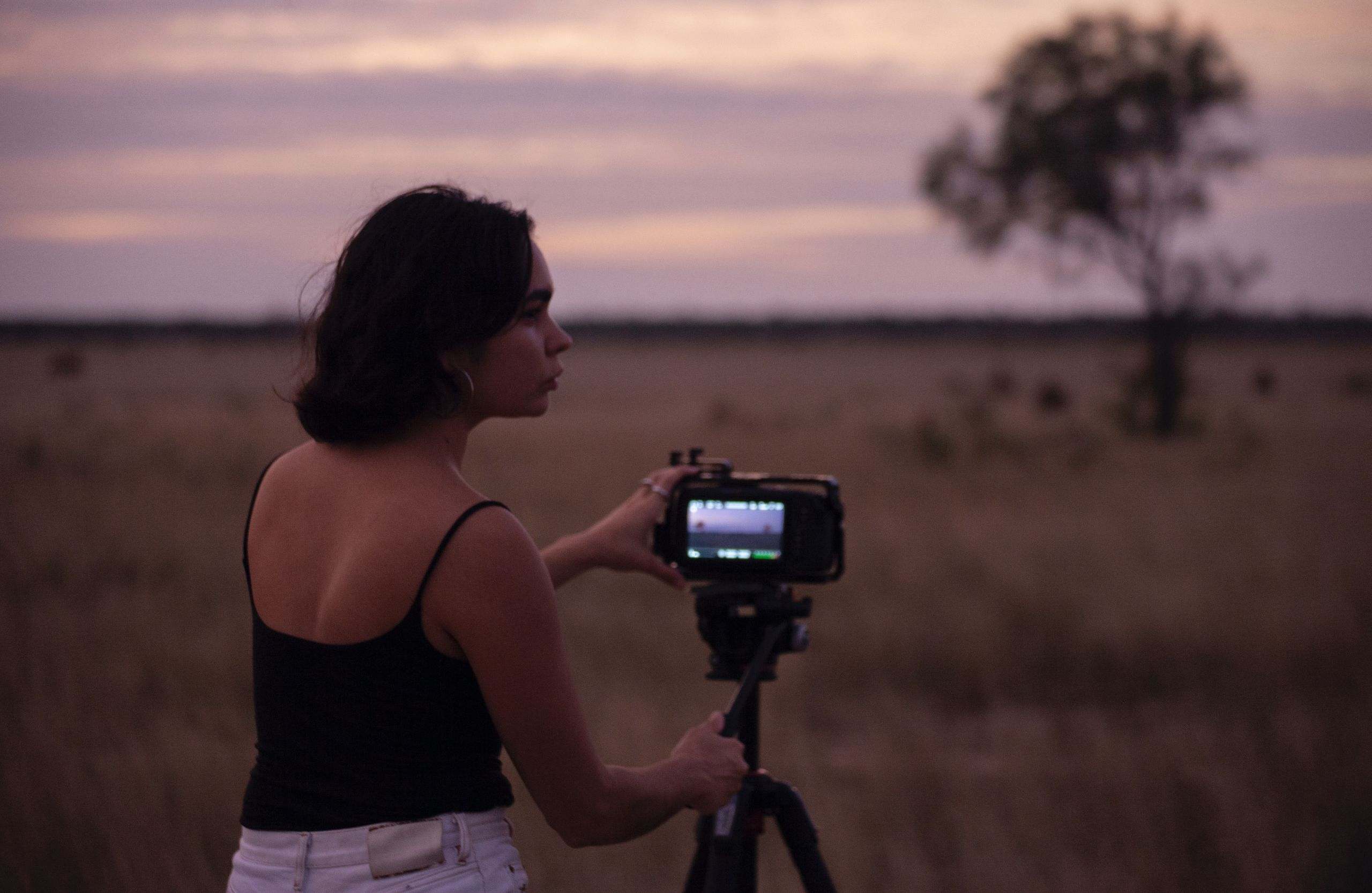
Welcome to the fourth issue of our Journal. Each month we share stories of nature and people. Photographers, artists, citizens and scientists share insights into the beauty of wildlife, wild places and what is being done to protect them. Plus a look back at the Wilderness Society's rich history in pictures. And more besides.
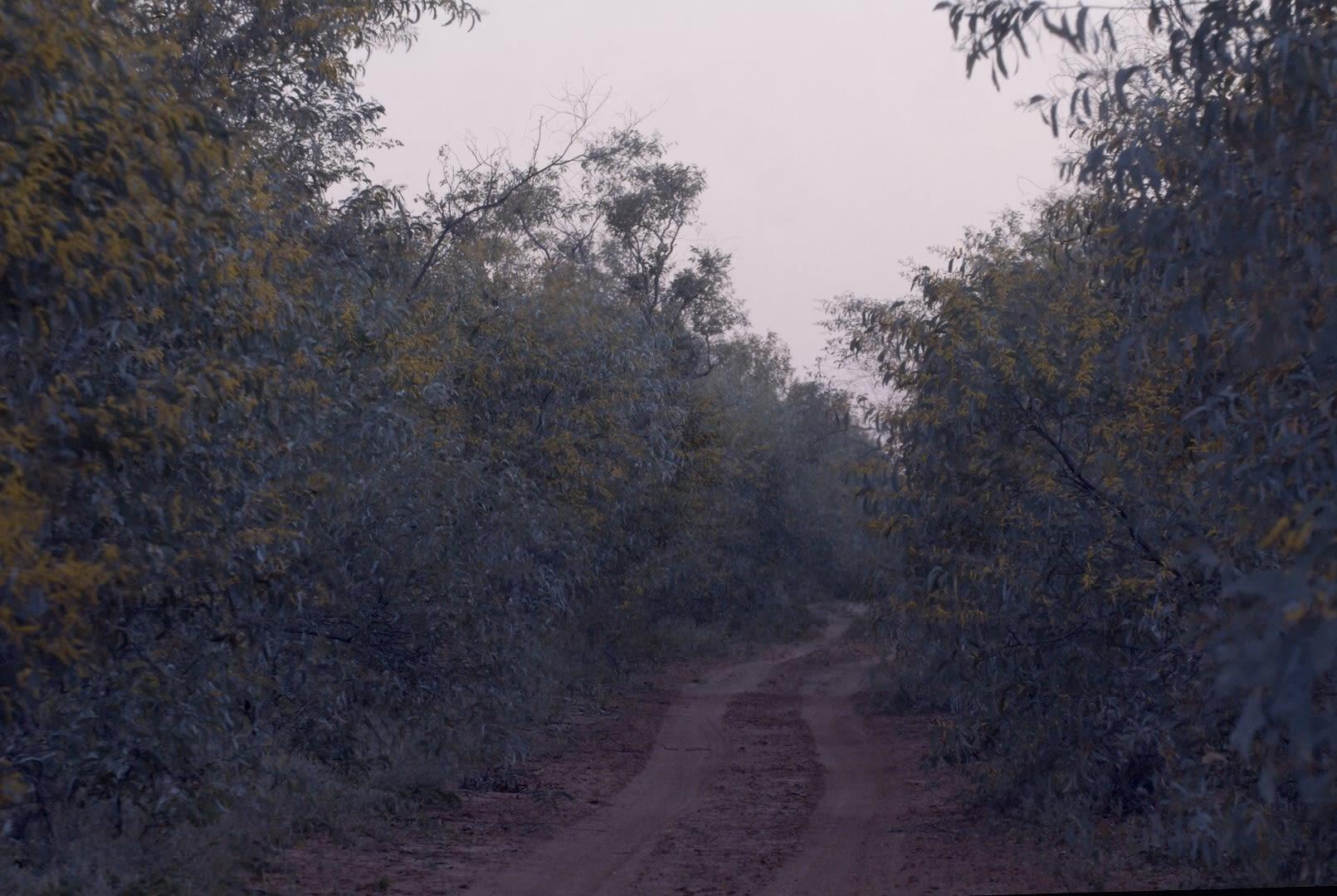
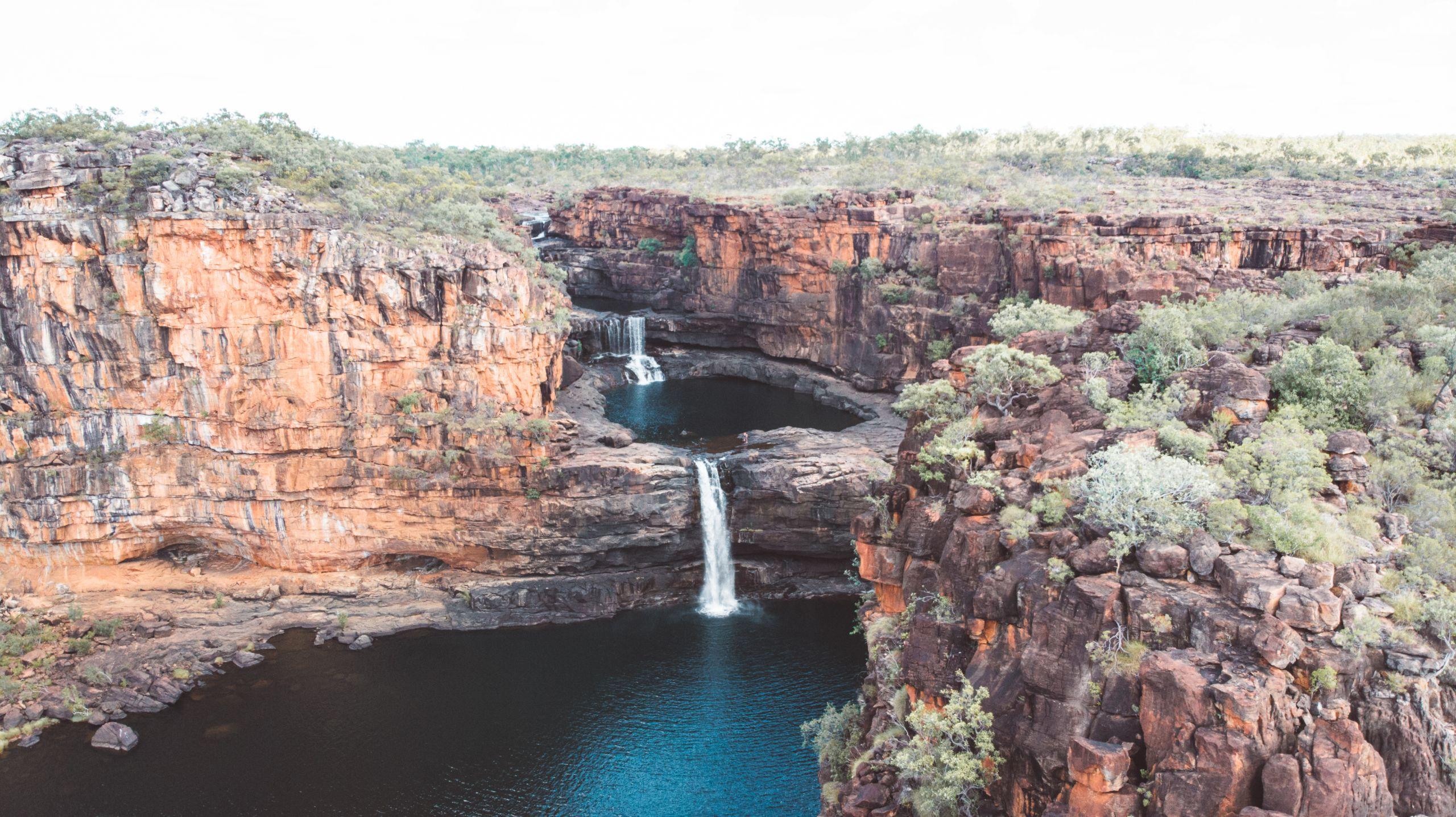
"Many of the concepts in the framework do not have a direct translation in English, so we created short videos to explore their meaning. I hope everyone is able to connect to Country during these strange times, even if, only virtually."
Explore more of Marlikka's Concepts of Country film series: @marlikka_perdrisat
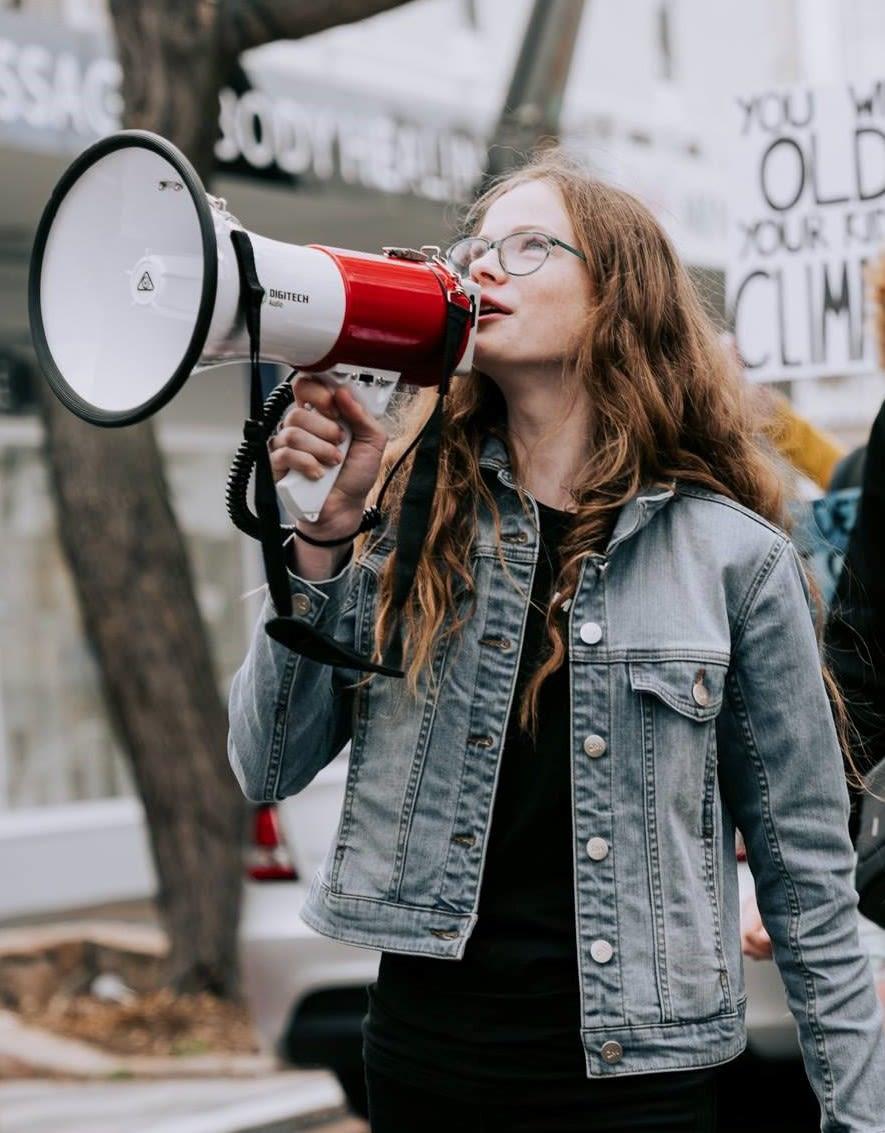
Tell us about the case you are embarking on, challenging the expansion of Whitehaven Coal's Vickery mine in NSW. Who are you representing and what are the next steps?
This case is about us as young people stepping up and asking the court for an injunction to stop the Federal Environment Minister from approving the “Vickery extension project” because of its climate impact. [Bella is one of a group of eight students from around Australia bringing this case.] The project would produce 168 million tonnes of coal over the next 25 years. That’s a lot of coal which, when burnt, will produce a huge amount of carbon emissions, fuelling the climate crisis. Our case says the Minister will breach her duty to protect vulnerable people like us from the devastating impacts of climate change if she approves the mine. We are bringing this case as a class action on behalf of all young people around the world who are impacted by climate change.
Why do you see this case as important?
Young people are more vulnerable than most to climate impacts. One reason is that we have no political power. We can’t vote. We can’t run for elections. Instead, we have to rely on adults to take care of the world that we’ll be living in. We are arguing the Environment Minister has a duty of care to protect young people from harm. That’s why we’re asking for an injunction to stop her from approving the Vickery Extension Project.
How important is it that our governments help tackle big issues like climate change and biodiversity loss?
We are seeing how climate change is causing species worldwide to become extinct at an alarming rate, increasing storms and natural disasters, rising our water levels and consuming our land and threatening our food and water supplies which can lead to conflict and wars on many levels. Biodiversity holds up all life on Earth. Human health depends on ecosystem products and services such as freshwater and food which are necessary for good health. Our Government needs to be making sustainable changes to protect our ecosystems long term and to protect our futures from the effects of climate change.
Are you optimistic about the future of our environment?
I am very optimistic about the future of our environment. Climate change to me feels like Pandora’s box. Once the box was opened it unleashed bad things in the world (climate change), but right in the bottom of the box was a beautiful butterfly called hope. And Hope made all the difference in the world. We need to focus on hope and the way we want our planet to look like in years to come. We have over 1500 young people signed up standing behind us with this class action from all over the world, from every continent except for Antarctica. This gives me hope!
This is a class action being brought on behalf of young people all over the world, and so young people everywhere are invited to join us in bringing this case. Please go to equitygenerationlawyers.com to stand with us. The time is now, our time is now!
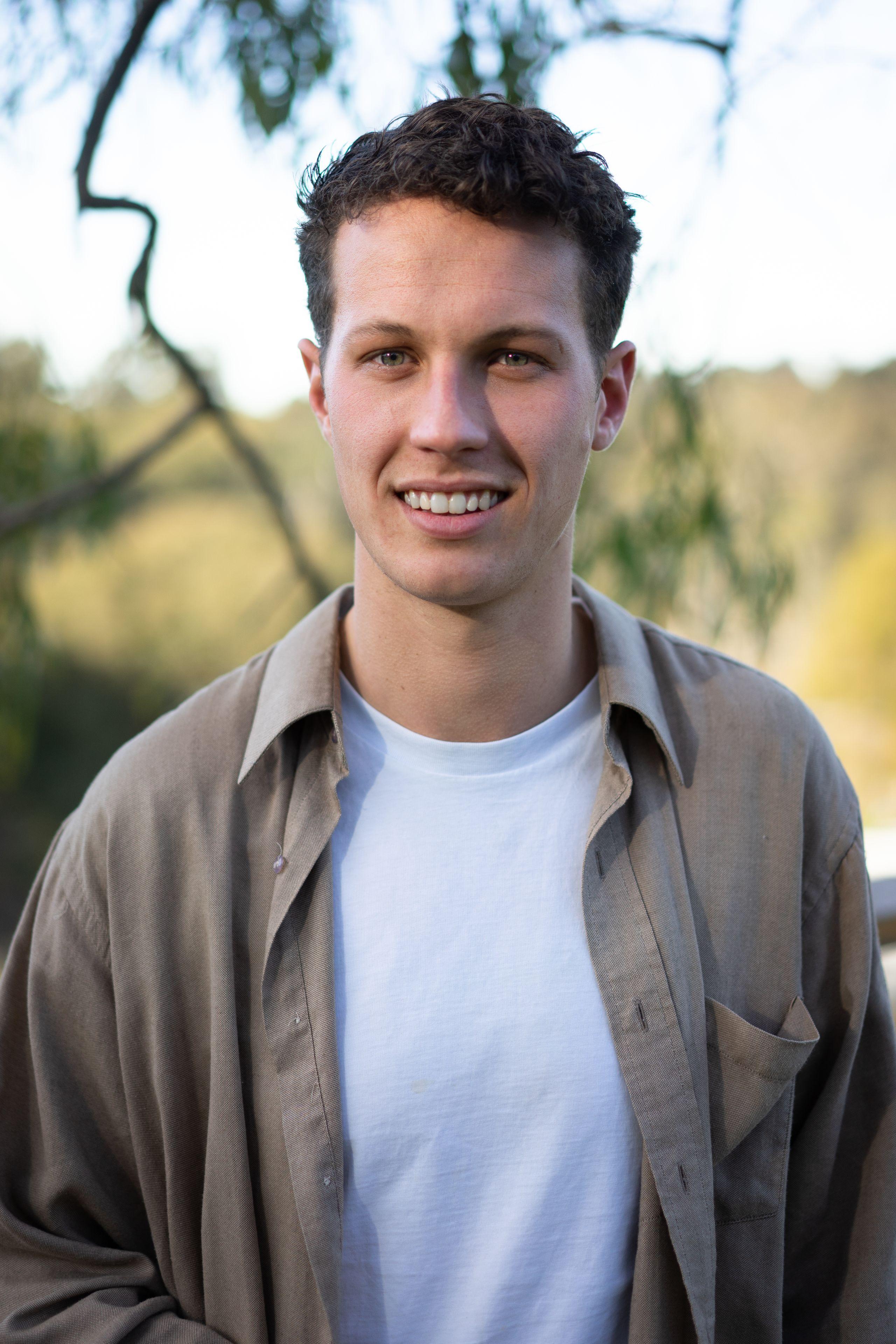
You're a member of the Wilderness Society's grassroots program Movement For Life. Can you tell me how you started in that and what are you up to at the moment?
I started volunteering with the Wilderness Society in May last year. After constantly reading and hearing about Australia's inability to deal with environmental issues such as climate change and biodiversity loss, I decided that the small things I was doing (like swanning around with a Keep Cup pretending that I was saving the world), weren't enough to help bring about real change. So I reached out to someone very close to me who works for the Wilderness Society, asked how I could help and have been on the journey ever since.
After doing a few volunteering shifts in the lead up to the last Federal election, some organisers from the Wilderness Society realised that I was from an area that didn't currently have an active Movement For Life group. They pitched the idea of getting one off the ground in Bayside, which I thought was a great idea. So I pitched it to a bunch of mates over dinner one night, who also thought it was a great idea, and here we are!
That happened in August last year and since then, the Movement For Life group 'The Wilderness Society Bayside' has been going strong (almost exclusively thanks to the amazing, self-motivated and passionate people that I was lucky enough to pitch the idea to). Since August we've been able to achieve some awesome things: we've helped our local council declare a climate emergency and helped build the resulting climate action plan; we held a launch party at our local bowls club with about 100 attendees; we've held a moonlight cinema event of the film 2040, of which we sold around 500 tickets and had Director Damon Gameau do a Q & A; we've engaged with our local MP, which resulted in a letter exchange with Sussan Ley (Federal Environment Minister) on the proposed changes to the EPBC Act.
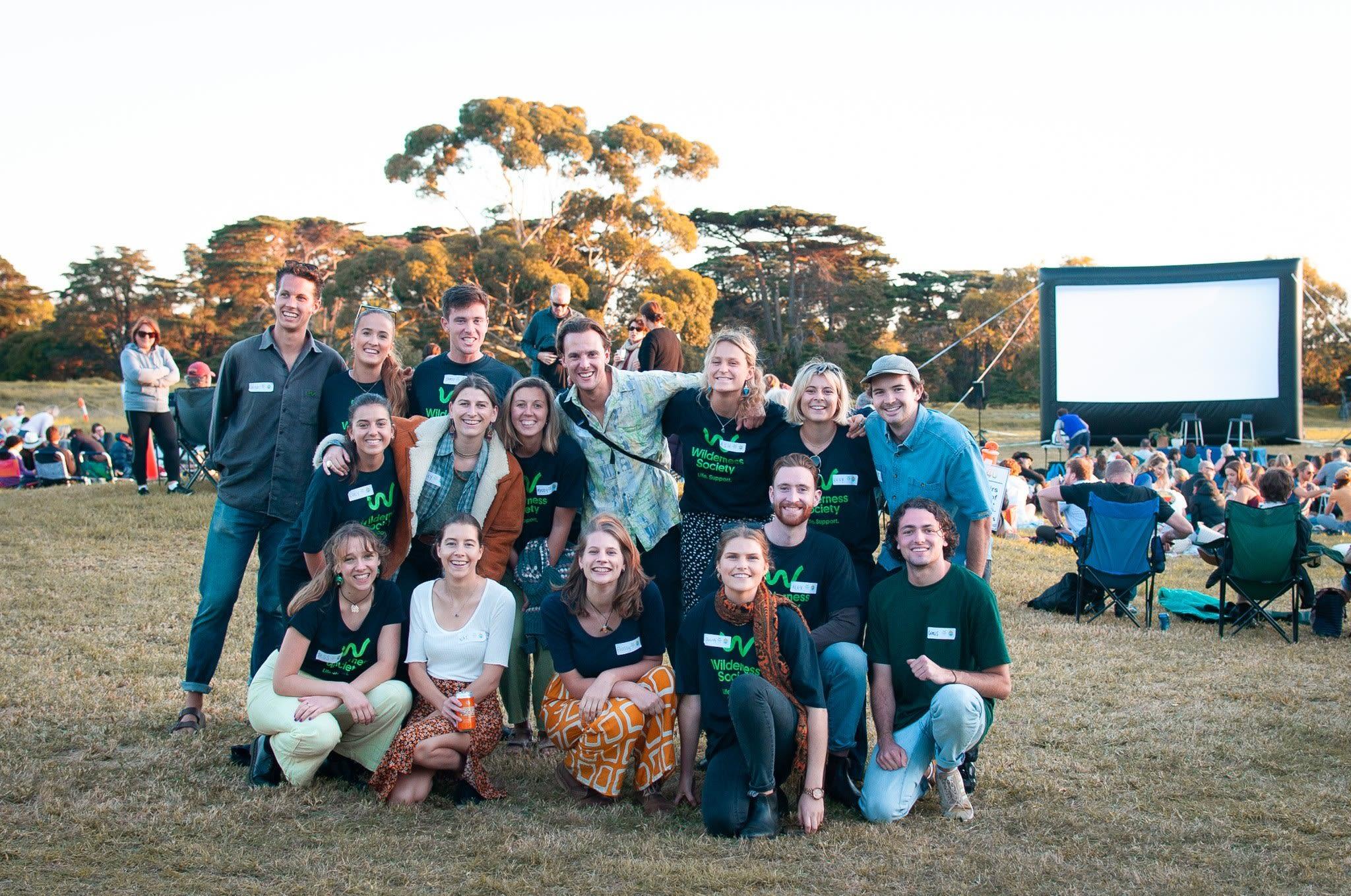
In the future, we're looking into a few different projects, which involve continuing our work with the local council, engaging with schools in the area to raise awareness around environmental issues with both students and parents, continuing to develop our relationships with local MP's and many other exciting ideas.
Why do you see this work as important?
Australia's record on environmental issues is pretty woeful in all respects. We're not on track to meet our Paris Climate agreements (depending on who you talk to), we have one of the highest rates of extinction in the world and our rate of deforestation rivals that of Brazil, Indonesia and Congo (countries that are consistently slammed for their disregard for the environment).
Partly, our votes can change these facts, but sometimes this isn't enough. Having a local Movement For Life group gives communities a central platform to communicate to all levels of government, giving them the ability to bring a large united voice and explain that we want more environmental protections and guarantees (we can see environmental concern continuing to rise amongst Australians with continued inaction from all levels of government).
How imperative is it that we have governments and councils on board to tackle big issues like climate change and biodiversity loss?
For me and for many others, having governments and councils on board is one of the most important pieces of the puzzle when trying to bring about large-scale change. These are the people that hold the levers we need to pull in order for Australia to begin to improve its environmental record. We have the opportunity to become a country that sets examples for the world, rather than a country that gives a crash course in trashing its natural environment.
Collective grassroots movements like Movement For Life are one of the ways that we can help build the pressure required to get these levers pulled, which is why I enjoy being a part of it so much.
Are you optimistic about the future of our environment? What gives you hope?
I'd say I'm cautiously optimistic. We have a very long way to go if we want to stop extreme environmental degradation and the effects of climate change. We haven't seen large strides towards fixing these problems for many years. But, there is a growing chorus of young people who share the same opinions as myself and are contributing to the growth of movements such as Movement For Life. Seeing the passion and energy that these smart and amazing people bring to push for change is something that keeps me optimistic, hopefully we can start making some of these vital strides soon.
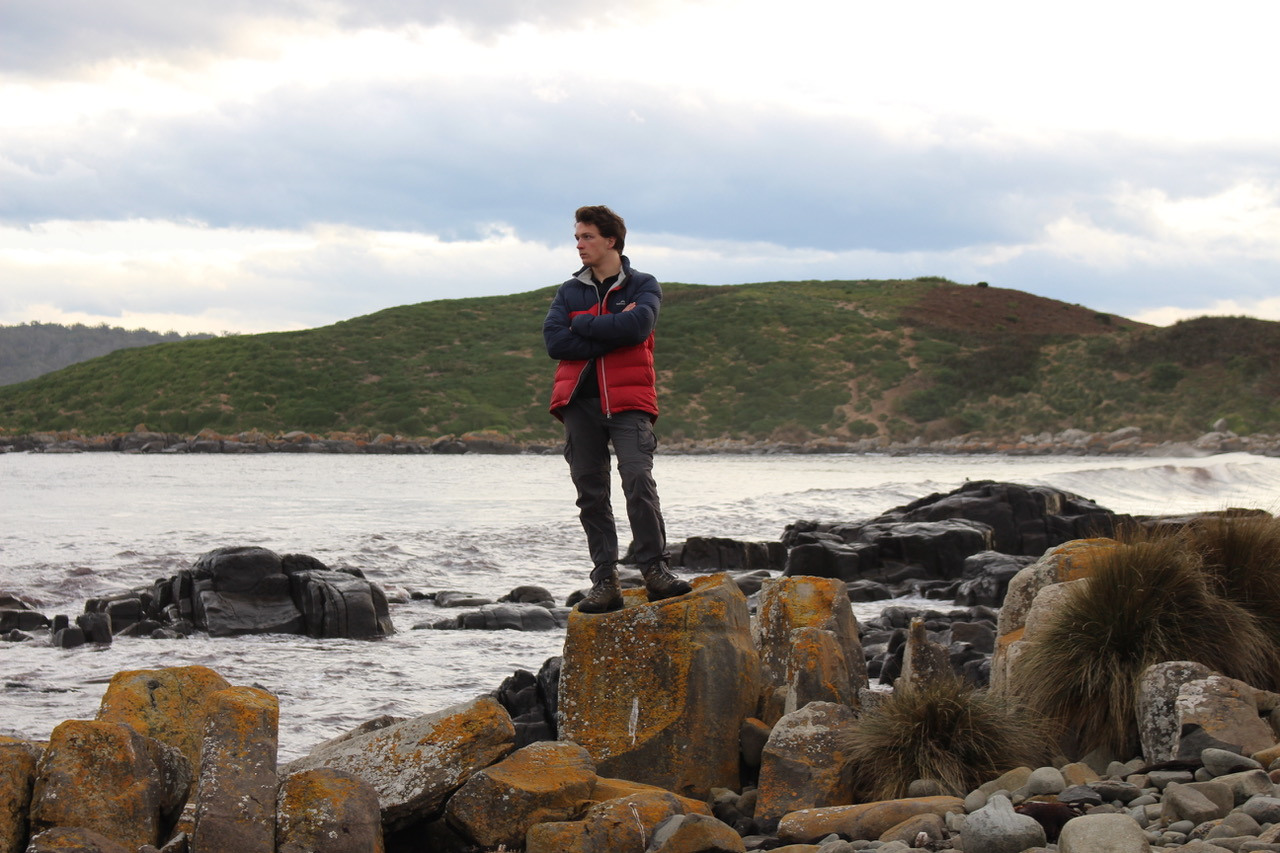
I’ve been living in Hobart for just about two years, studying Marine & Antarctic Science at the University of Tasmania. In my second of three years as an undergrad, I’ve been really loving my degree and the big change of scene from my hometown Sydney. It’s safe to say that Tassie has a much gentler pace of life than the big city, and it’s a relaxed and beautiful place to study. Living on campus keeps me very busy, and between that and my study, the island is really just a big playground that keeps throwing incredible places, people and experiences in my direction. It doesn’t get much better than a day that combines a morning snorkel, afternoon lecture and sunset trip up the mountain.
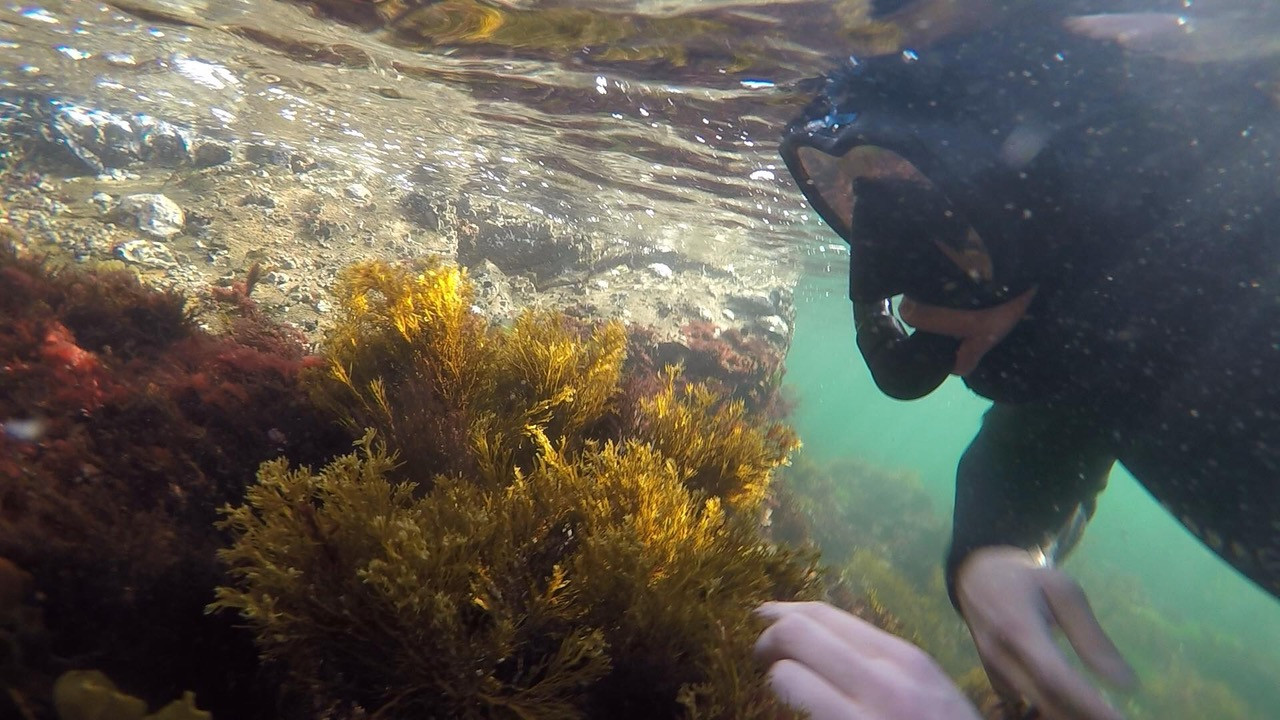
Why do you see this work as important?
As clichéd as it might be, it’s absolutely true that the ocean is just so unbelievably important to absolutely everything on the planet. But in studying marine science, it’s baffling just how little we understand how it works, how it changes and how we can manage it. Like everything in the natural world it’s such a huge, interconnected, dynamic system that still really needs some unpuzzling, and I think the more minds committed to that cause the better. There’s no doubt that the ocean will have a big role to play in the future of climate change and our society, and it’s going to be crucial to figure out just what that role will or should be.
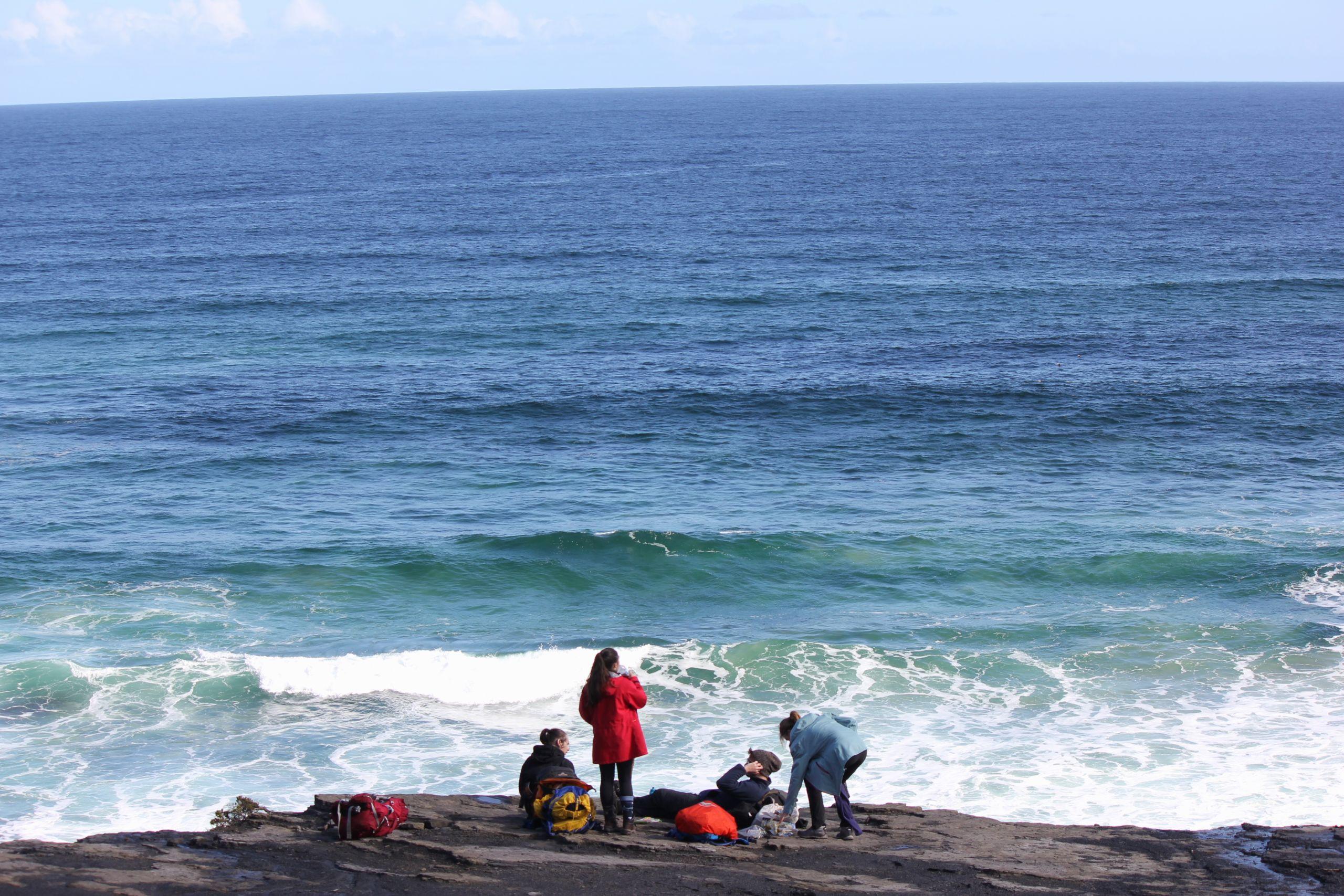
How do you think we can tackle the climate crisis?
Personally, climate change is a frustrating issue because virtually all of the pieces are there to address it, but just aren’t being used. To me it seems that while public conversation lags behind, the scientific conversation has long progressed past questions of ‘is climate change real?’, ‘what effects will it have?’, and even ‘how can we address it?’ and is now concerned with questions of ‘how can we implement the necessary changes?’ I think that an important component of tackling the climate crisis will be addressing that lag between public and academic conversation (and quickly), but it certainly doesn’t help that political interests deliberately shift public conversation back towards those early questions.
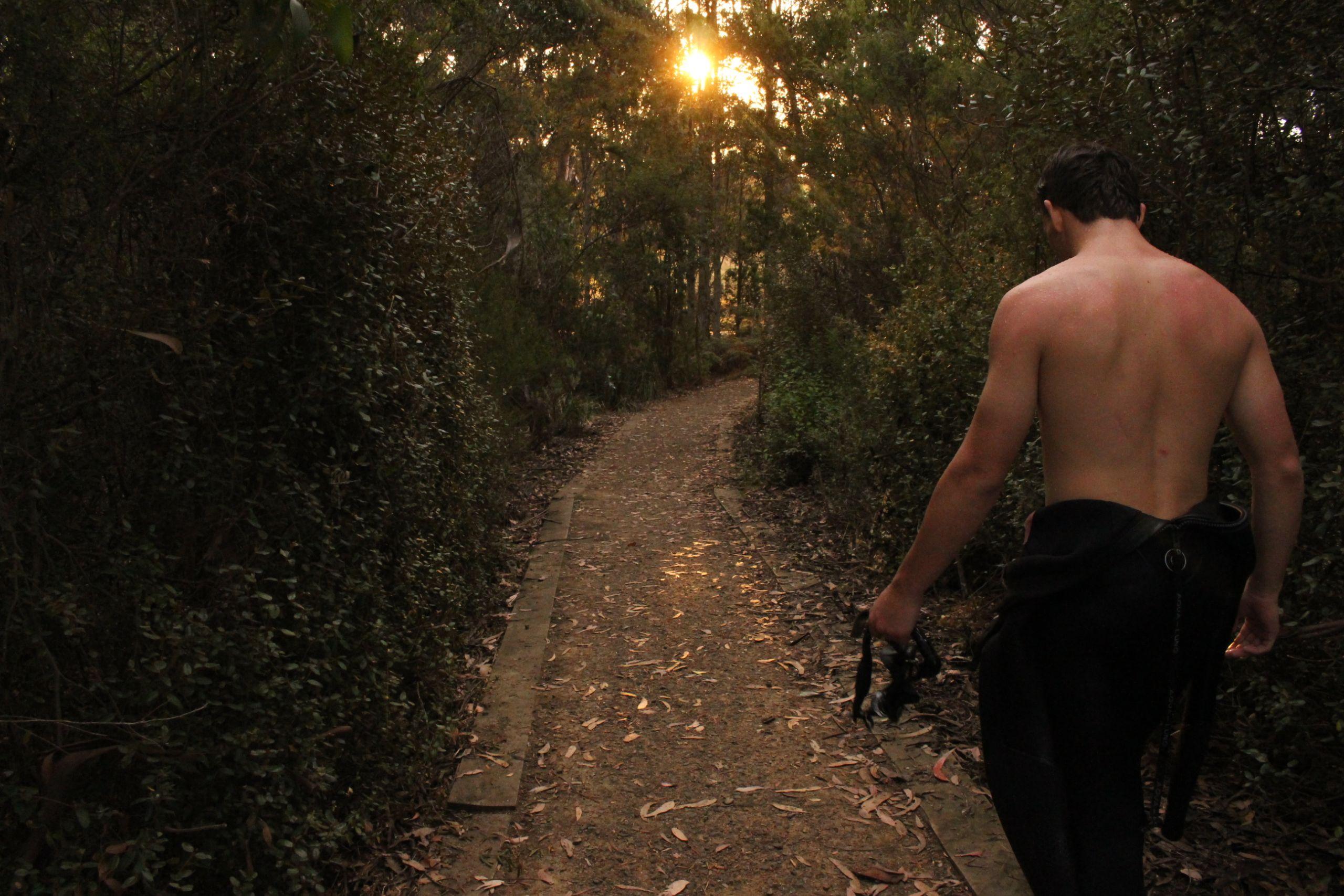
Are you optimistic about the future of our environment? What gives you hope?
I’ve certainly become less optimistic about the future of the environment over the years, and over the course of my study so far. The challenges we face are tremendous, and progress is slow, and I’m confident now that the environment I love will be dramatically changed over the course of my lifetime. But despite that, I’m still optimistic about the future. It never stops being reassuring to see that so many people care so deeply and try so hard to make a change.
At the very least, I know that there’s certainly no shortage of brilliant marine biologists in the production line. And I think that’s definitely something to be hopeful about.
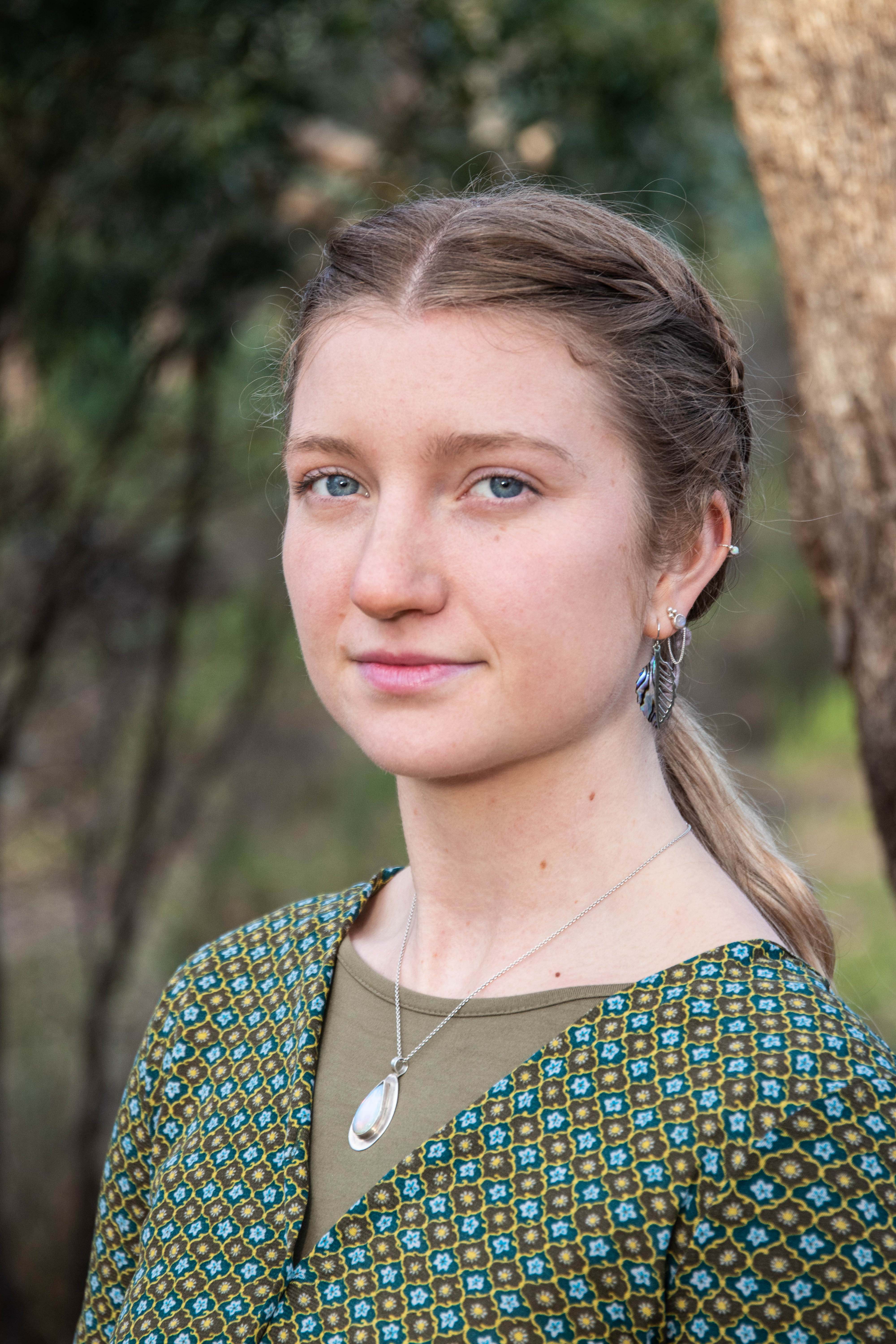
I live on unceded Wurundjeri Country in Hurstbridge. I acknowledge that a lot of my work is within a Western legal system but that the land I live on holds First Nation structures of law/lore which were practised for thousands of generations.
Why are you taking the Federal Government to court? Was there a specific moment that made you take this action and what are the next steps?
I can’t remember a time when climate change wasn’t a concern to me, the more I learn the more concerned I get. The area I grew up in was devastated by the Black Saturday bushfires in 2009 and worse again this year in the Black Summer fires. I have friends who lost homes and families. Climate change is making these fires more frequent and severe and that is a future I want to change.
I’m a fifth year law student and last year, lawyer David Barnden gave a guest lecture in my Climate Law subject about the financial risks of climate change. Anyone who knows me would tell you that finance hasn’t always been my thing, but David made me realise how important the connection is between investment, our economy and the climate crisis. His talk sparked my interest into the somewhat deep dark world of investment and how it is a driving factor of climate change. I went home that day and switched to an ethical Superannuation fund. David is now my lawyer in a world first action against the Federal Government, claiming that it needs to start being honest and telling the truth about the risks that climate change is presenting to our economy, and until it does so, it should not be able to issue Government Bonds.
As with everything, the court system is taking longer because of the pandemic, hopefully the next step of having our first court date will happen as soon as possible. The government has still not responded to the risks.
Why do you see this work as important?
There are days I feel the hurt of our destructive system flooding through me, the pain of seeing our disconnected society that is no longer caring for our Earth is deeply distressing. I think that it is important to highlight the interconnectedness of our world. Climate change means that we need to have social and economic change. Experts believe that if a country is not prepared and taking genuine steps to transition to a low carbon economy, the economy will ultimately suffer more as a result of an abrupt and disorderly transition.
We need to immediately start to reshape our values and with my case I hope to ensure that our Government will not continue to hold us back. The recent announcement about the ‘gas led recovery’ is a shocking reminder that our Government is not taking this risk seriously but in fact leading us into further physical, social and economic disaster. Holding on to our economy that relies on destruction and exploitation comes at far too high a cost.
I have learnt a lot about the financial world recently, it is a powerful force with many strong influences, but I have realised that money goes where we decide to put it and investment does not need to mean funding fossil fuel production and exploiting our resources. We need to be creating a healthy economy that encourages the regeneration and protection of our Earth.
How imperative is it that we have governments and councils on board to tackle big issues like climate change and biodiversity loss?
Our Government has the power to spend our money and they need to immediately stop using it to support destructive industries. The climate crisis needs to be at the front of our minds for every decision we make. It is crucial that the Government is doing all it can to restore and heal our Earth.
Are you optimistic about the future of our environment? If so, what gives you hope?
I am optimistic because I can feel change happening rapidly all around us. Sometimes the thought of how much needs to change makes me feel overwhelmed and scared, but we are all facing this new world together, and I have reached a place where I am far more scared of ‘normal’. Seeing people rising up to challenge injustices and embracing new ways of life brings me hope. Together we can create and embrace a new world.
We need to learn from First Nations people and the lore of the land; don’t ever take the first of something and don’t ever take the last, ensure there is enough for those who come next. We can be grateful and care for our resources, we can use only what we need and if taking something could possibly cause irreversible damage, we need to leave it where it is. I have always lived in and around the Central Highlands of Victoria, this area is home to the amazing Mountain Ash forests, which are among the most carbon dense in the world. I feel safe and at home in these forests, but these ecosystems are under threat. If we keep going as we are and not responding adequately to the climate crisis, these forests have a greater than 92% chance of total ecosystem collapse by 2067, this increases to nearer 100% at our current rate of logging.
One legal case may help but I know it is not going to protect us, looking at our Government I don’t think they will protect us either. We all need to unite, stand up against injustice and face this crisis together.
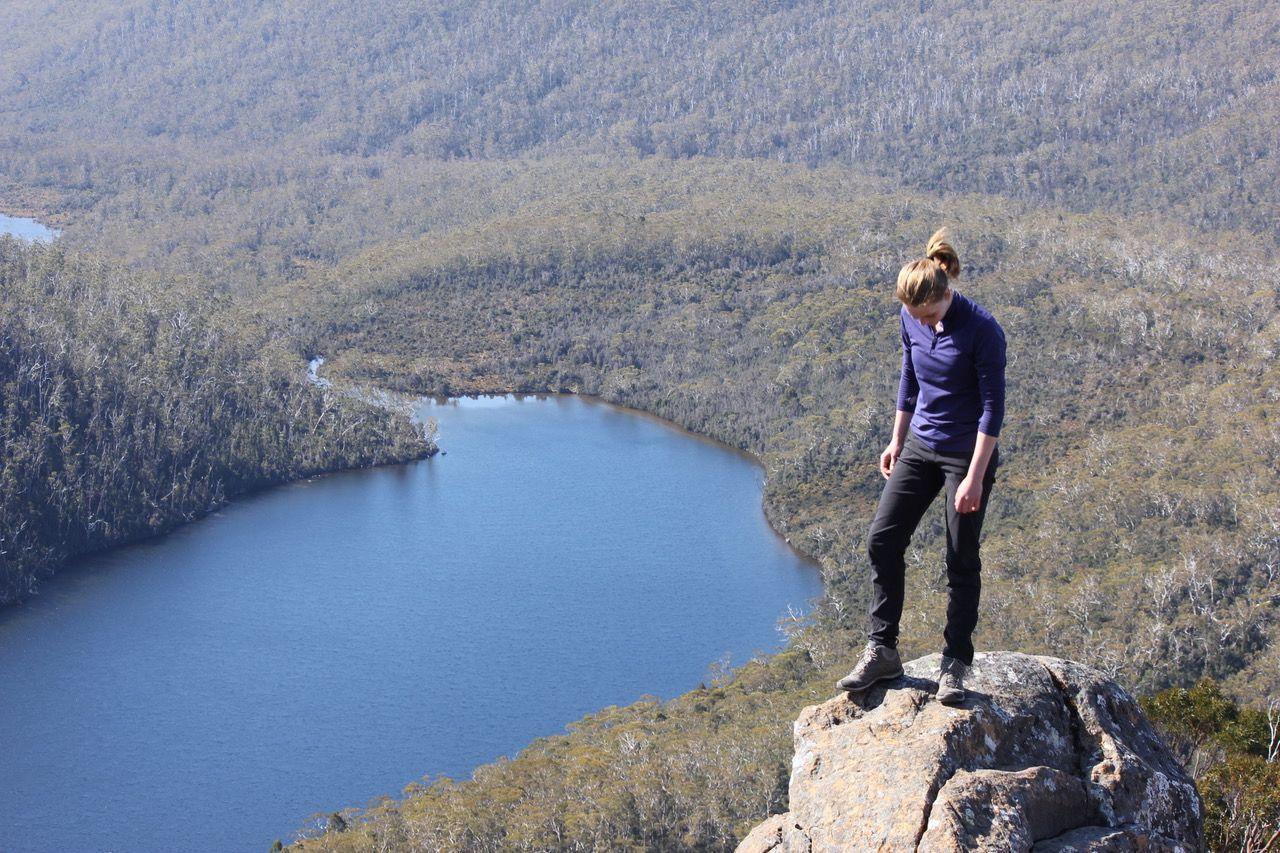
What are you up to at the moment? What are you studying?
I’m studying a Bachelor of Marine & Antarctic Science at the University of Tasmania, which has worked out great for me as I can spend the week learning about marine ecosystems, animal physiology, marine policy and much more, but then I also get to spend my weekends camping, hiking and diving all around this incredible state.
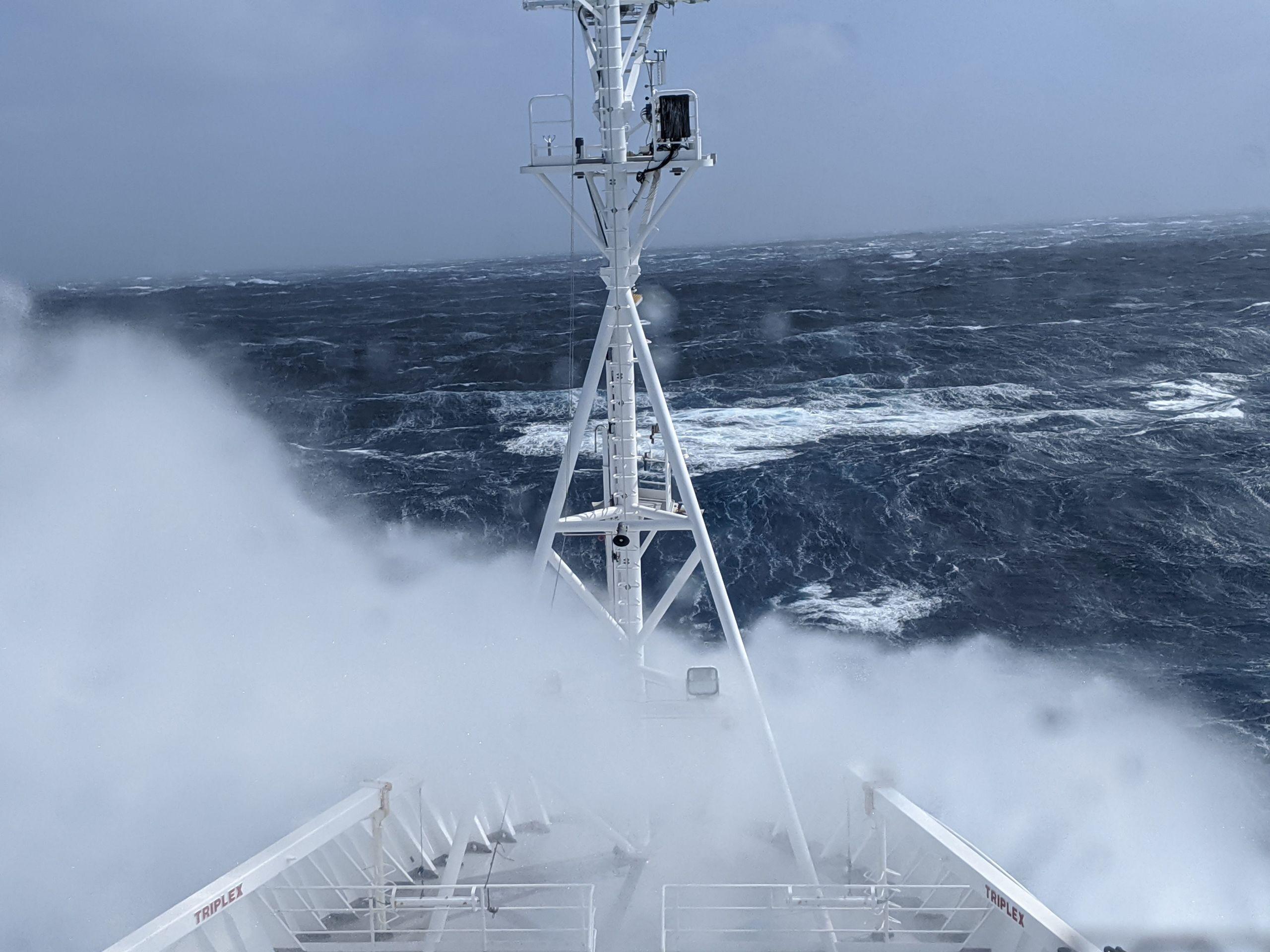
I was also lucky enough to be able to volunteer as a research assistant on a two-month long voyage to the Southern Ocean at the beginning of this year. The voyage was a geological expedition to the Kerguelen Plateau which is near Heard and McDonald Island. We spent the days watching for whales as we mapped the seafloor, and the nights dredging for samples to figure out if the seabed was composed of continental or oceanic crust. It was incredible to say the least, not only because of the hands-on experience, but because I was able to form a really personal connection with this part of the world.
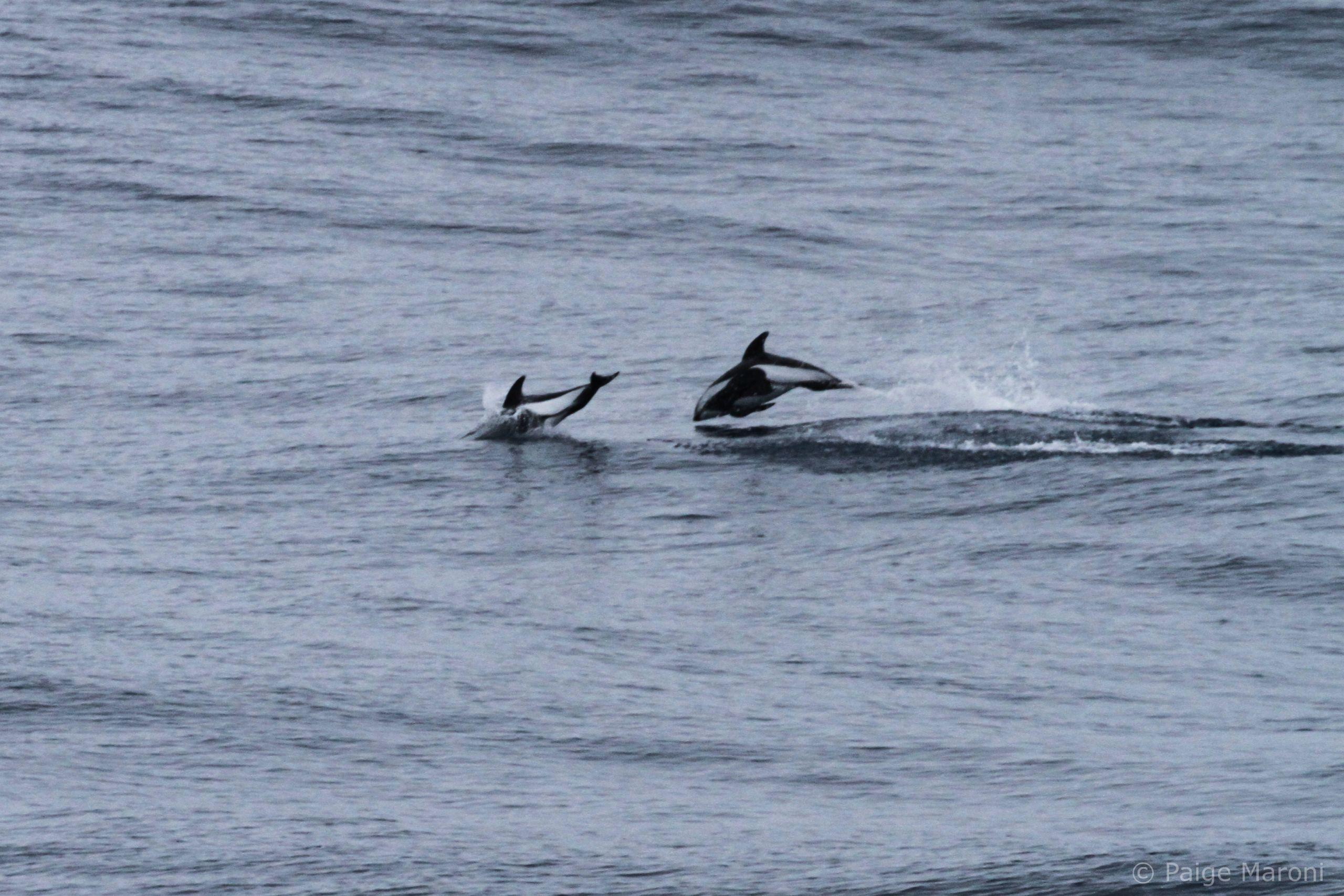
Why do you see this work as important? How do you think we can tackle the climate crisis?
This work is important not only for creating better scientific understanding of the world around us, but it’s also important for connecting people with the natural environment. We have all this wonderful data being collected and analysed, but the fact of the matter is not everyone is going to have the time or resources to track down a scientific journal article and read, let alone understand, it. I personally believe the way forward is by using inter-disciplinary collaboration and cooperation to better communicate scientific findings to the wider community. Something that could potentially be useful in the context of the climate crisis is using art to communicate science. Art (in any shape or form) is something pretty much everyone engages with on a daily basis, so using art to connect people with particularly vulnerable places such as Antarctica is vital for raising awareness and getting people to care about what will happen next. When people begin to care about these places, they begin to care about the problems they face, which is the first step in igniting change.
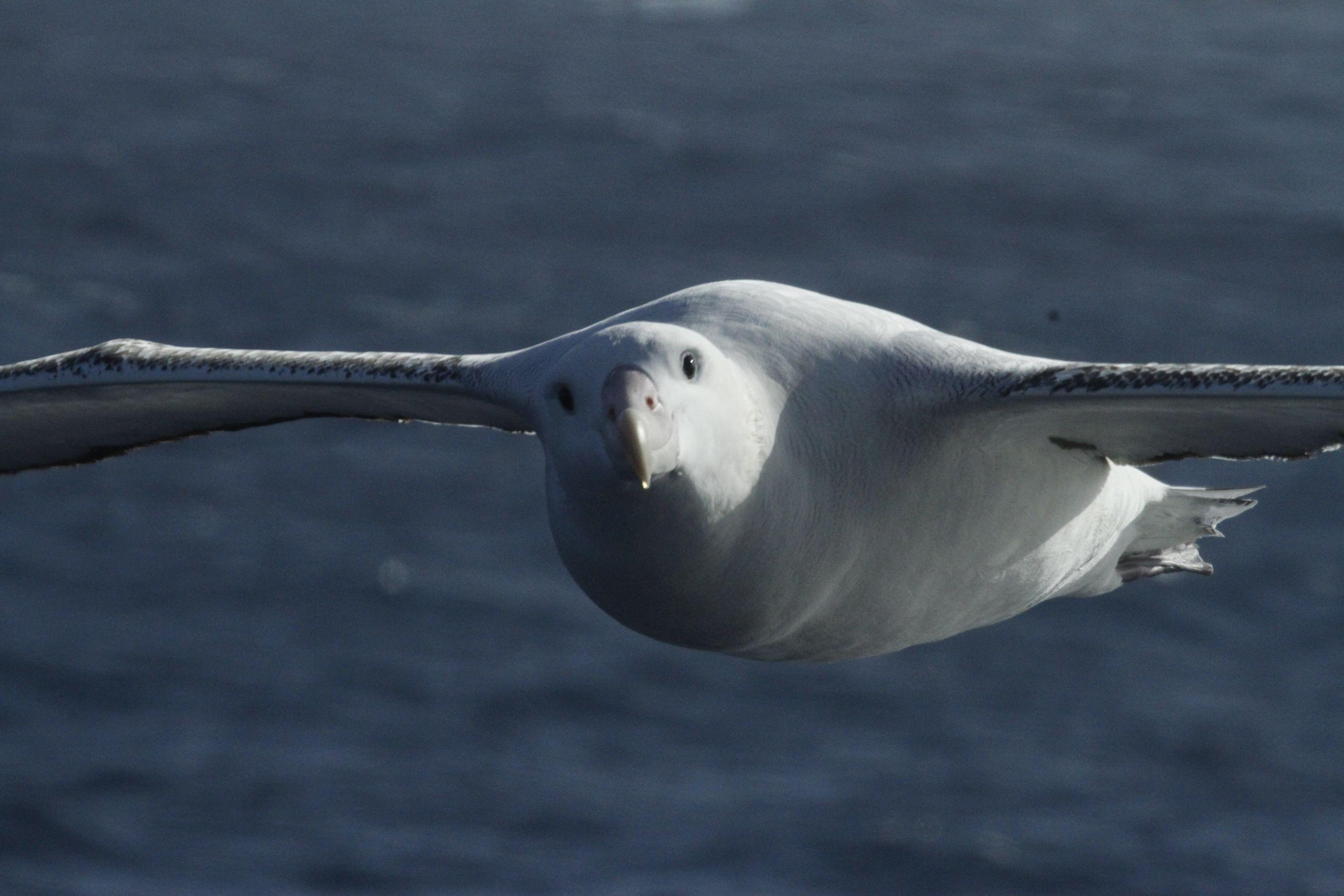

Like the young people in this Wilderness Journal, we share a deep love of nature and a passionate belief in our natural world. We also understand that we won’t survive without wild spaces and we must find a sustainable way to exist, by protecting, restoring and sustaining nature.
2020 has been a year of upheaval, we’ve had to address a globe-altering pandemic on top of the largest bushfire season in history. Our ongoing challenge is how to address the problem of environmental degradation in these turbulent times? Ultimately, we want children to experience the natural world that we had; and we don't want future generations on the same fight for nature that we're on today.
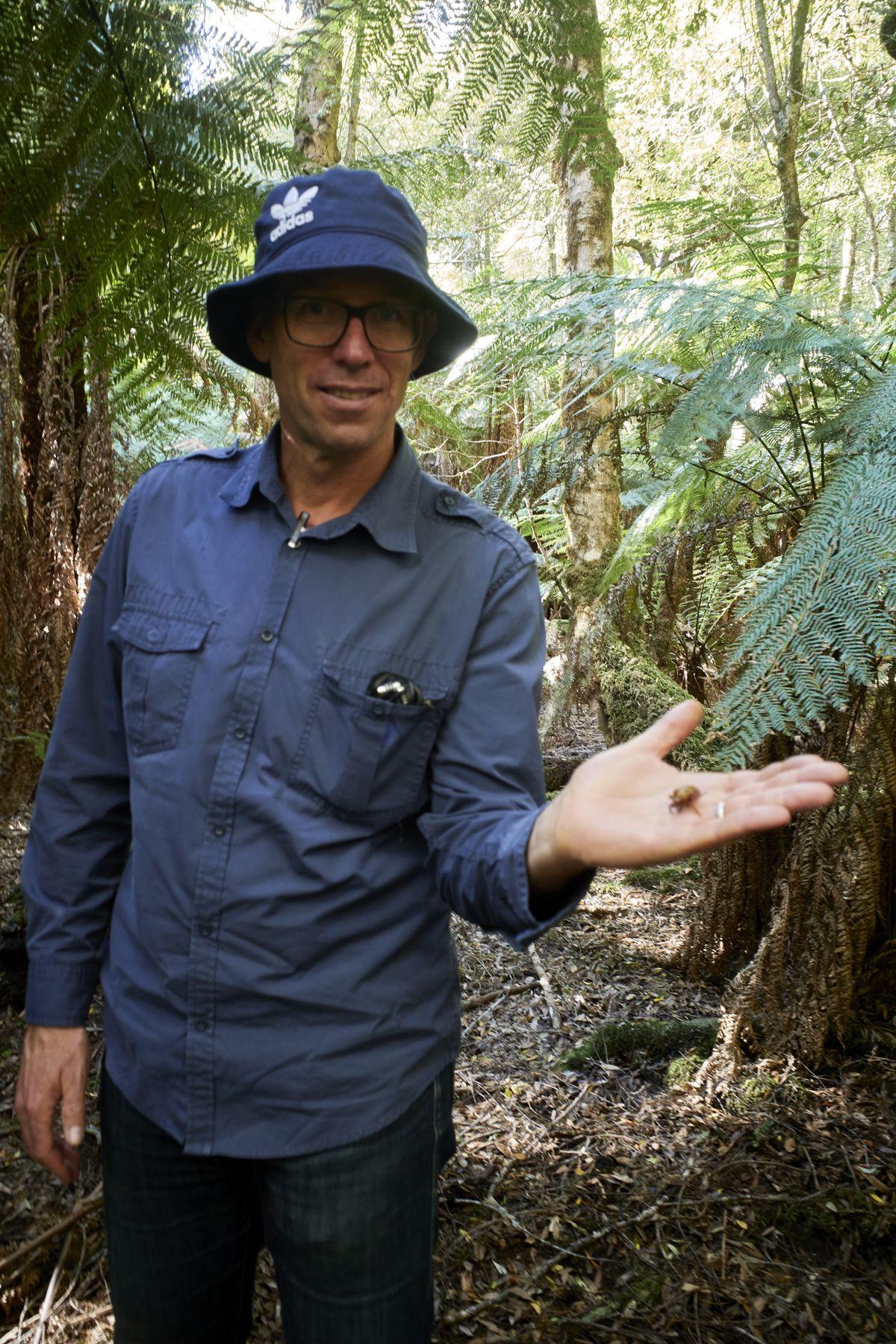
There are key strengths we can stick to ensure we continue as a strong advocate for nature in the coming decade. We are exceptional strategic disruptors; you don't defeat the likes of fossil fuel giant Equinor in the Great Australian Bight without having some really deep strategic knowledge. We appreciate the need for wild spaces, intact habitats that protect Australia’s biodiversity and support us all. And we have to keep reflecting on our role in society, how we are a group that works alongside communities to achieve their goals rather than telling them what they should be doing.
If we focus and improve these strengths, then we will continue to be an effective force. And we can draw inspiration from the skills and drive on display from the young people here.
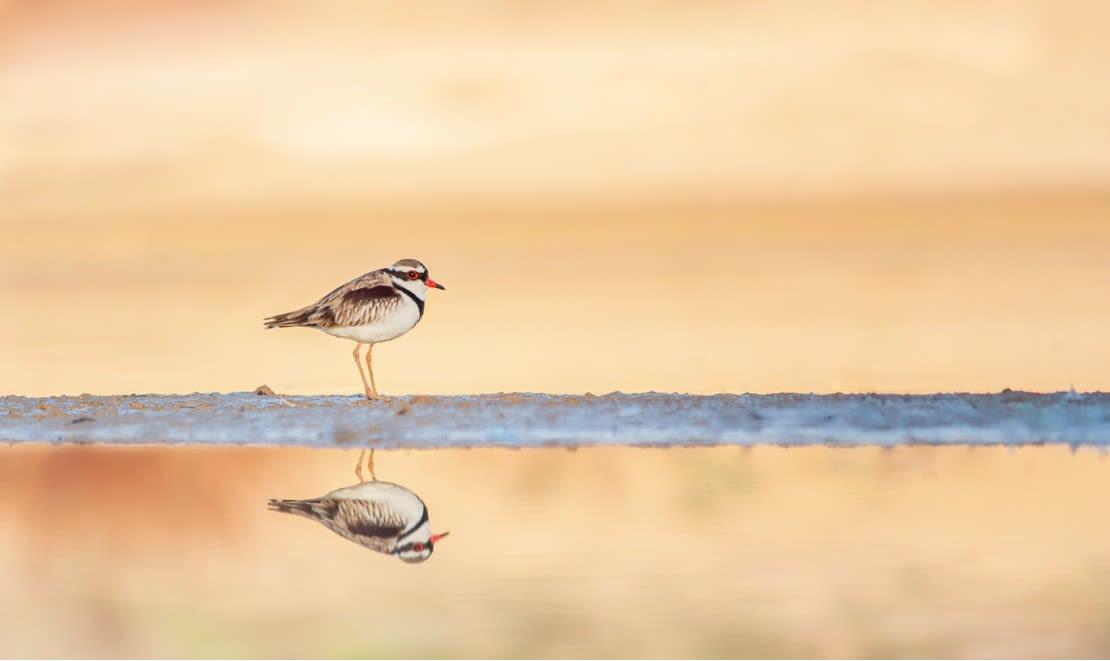
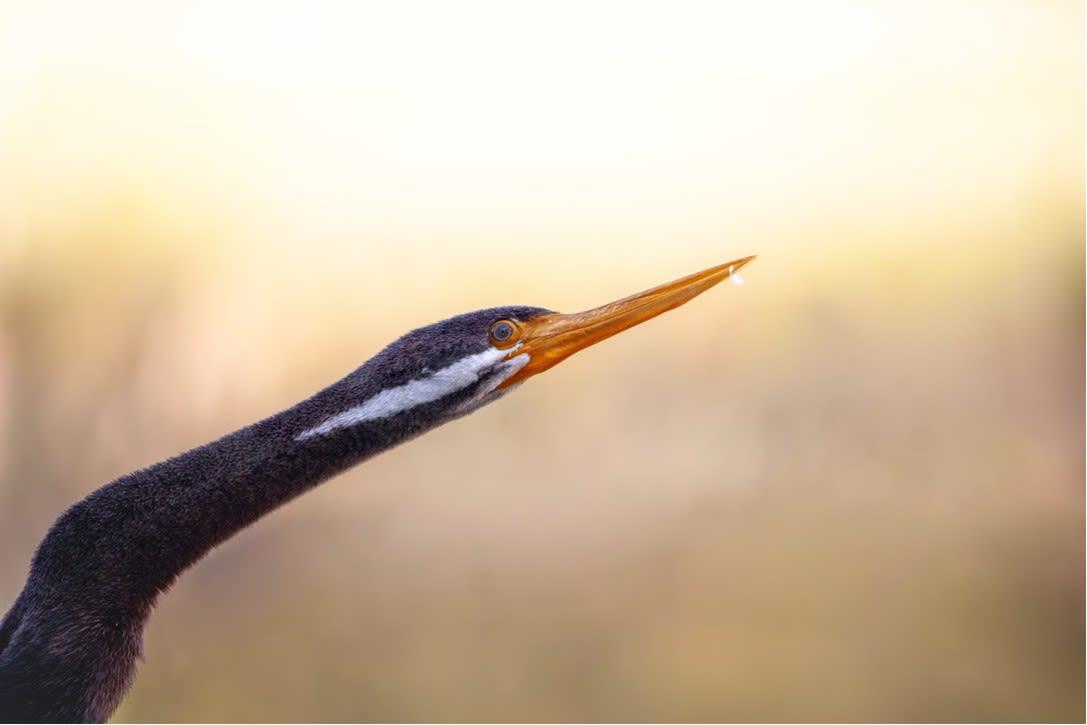
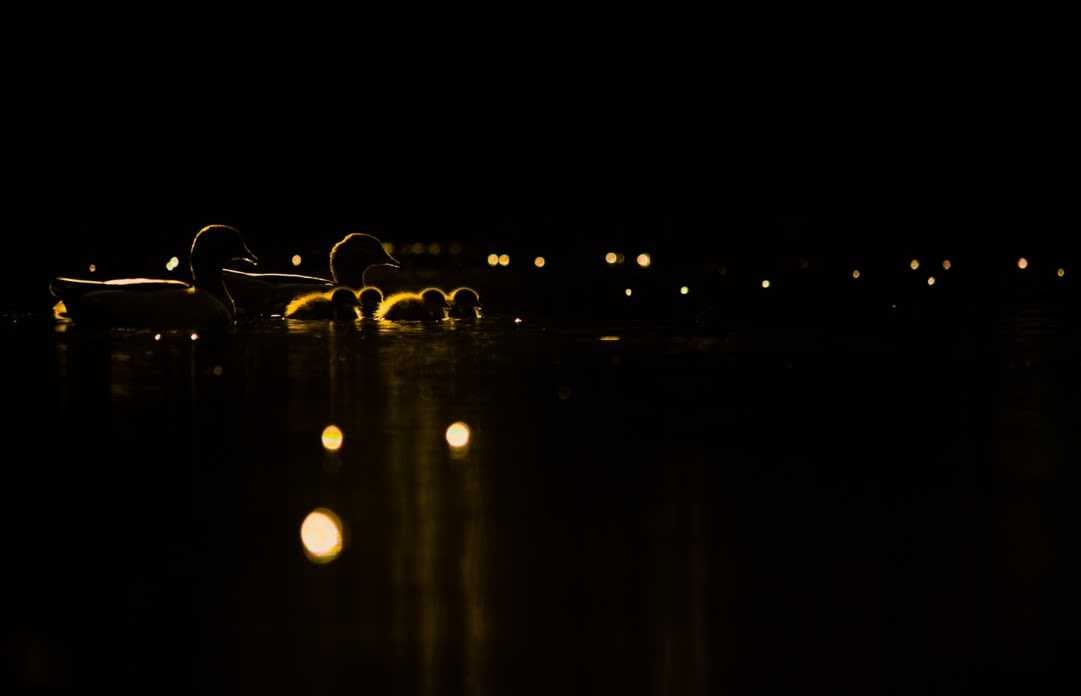
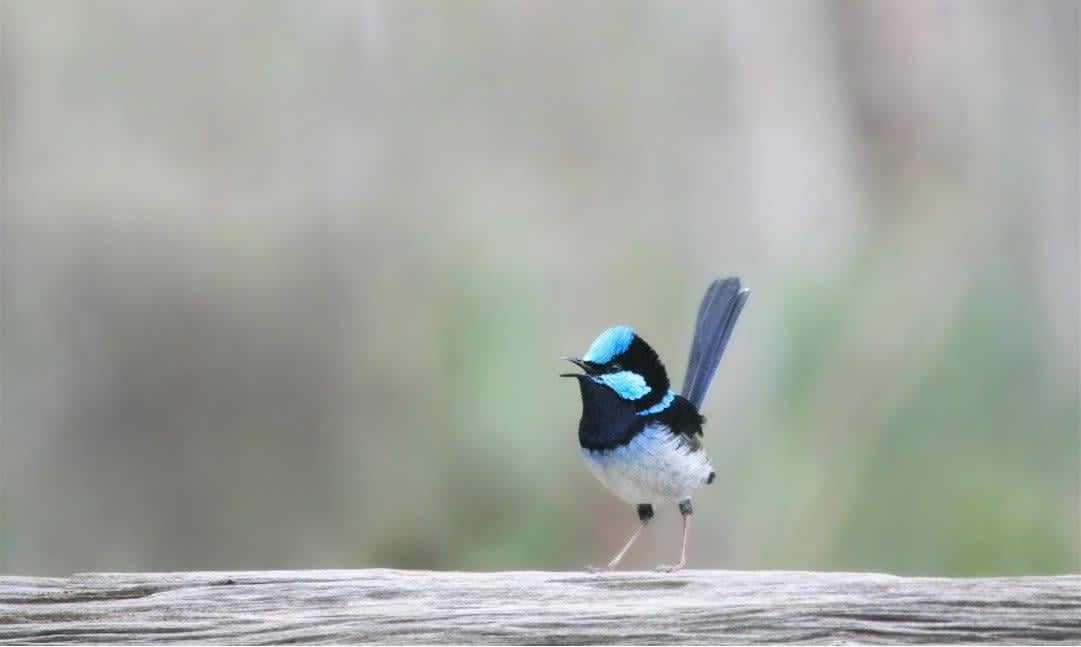
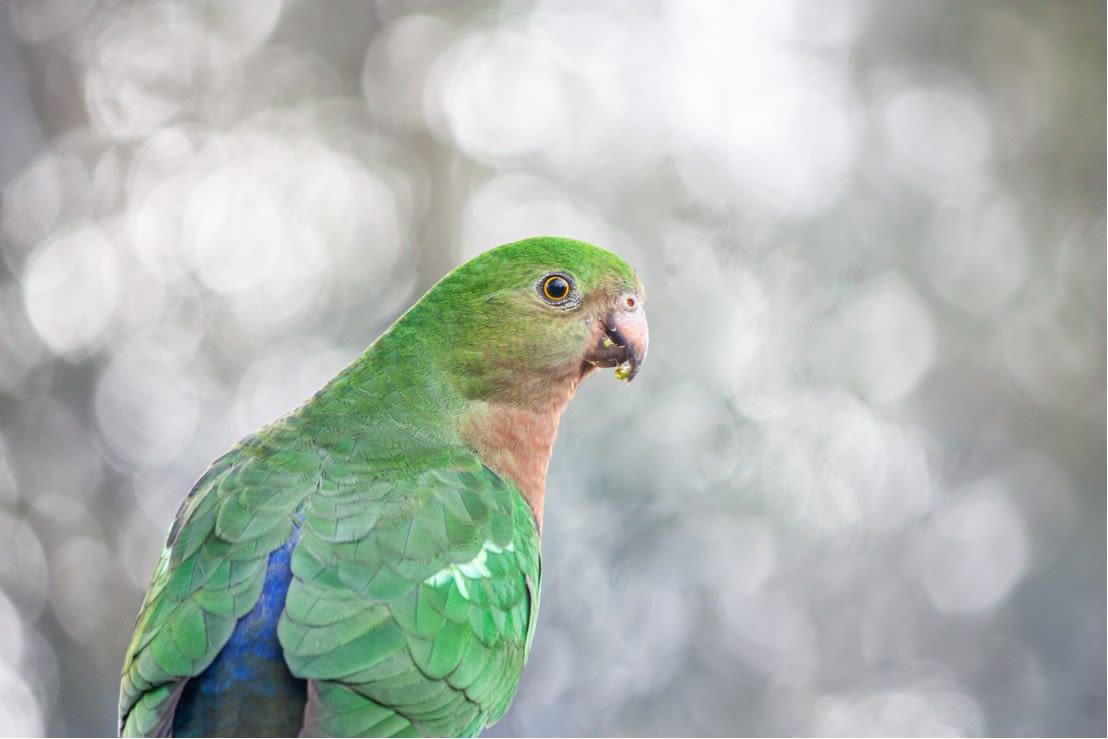
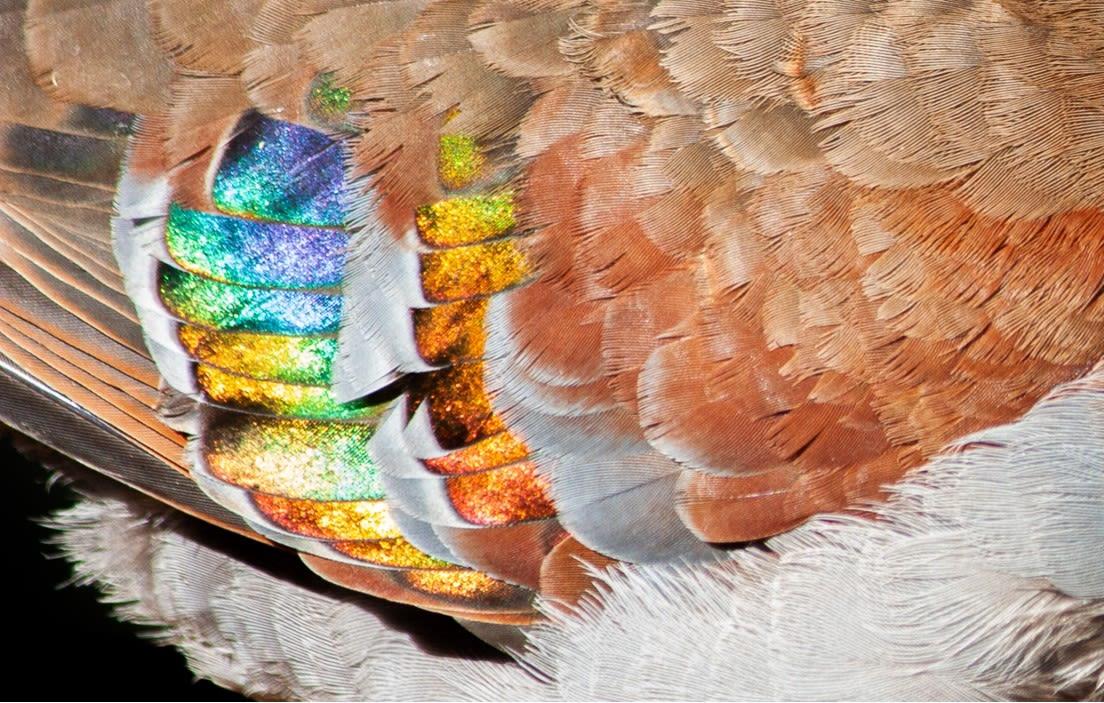
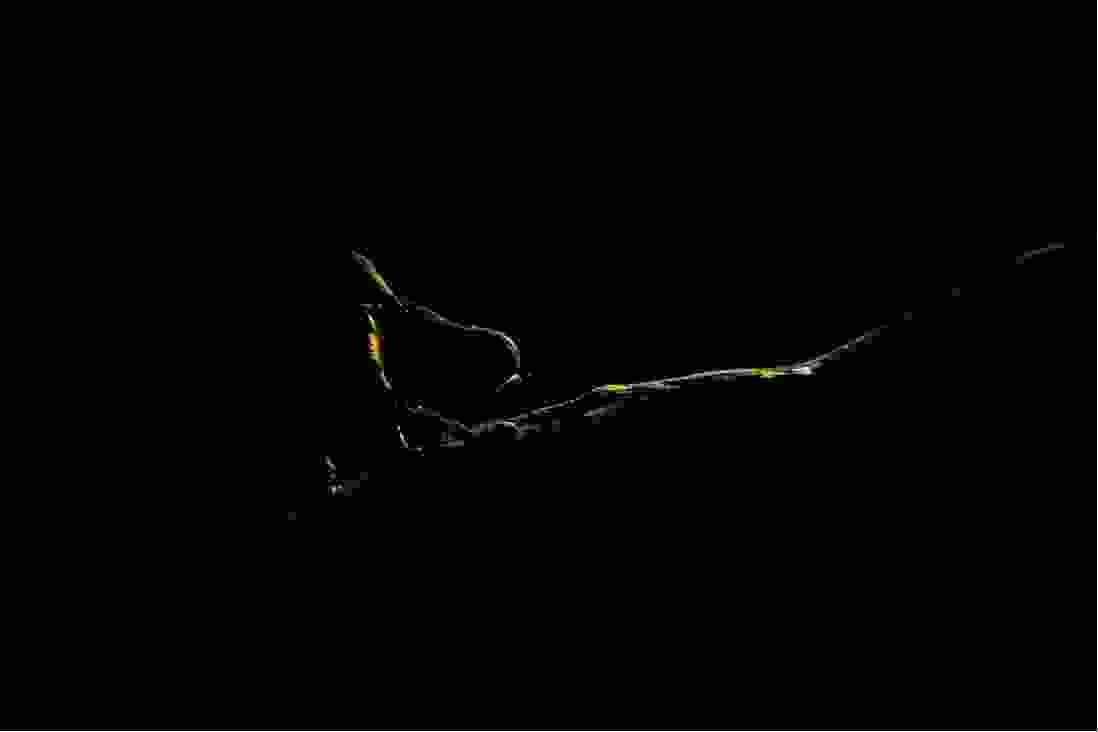
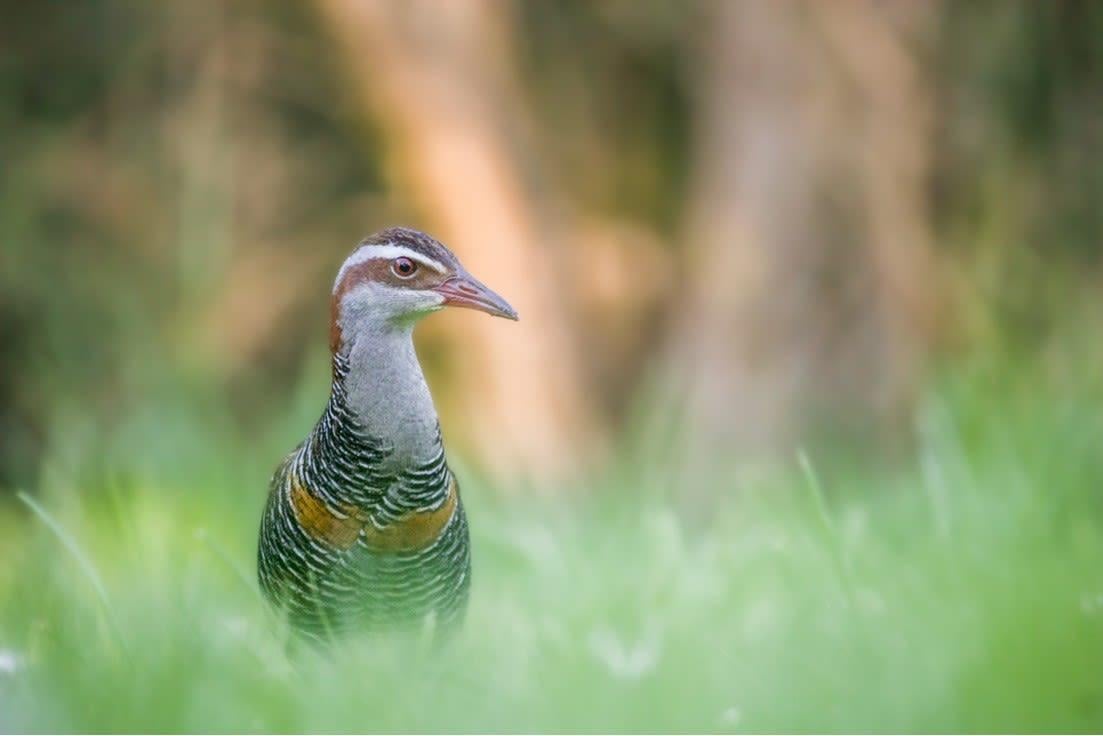
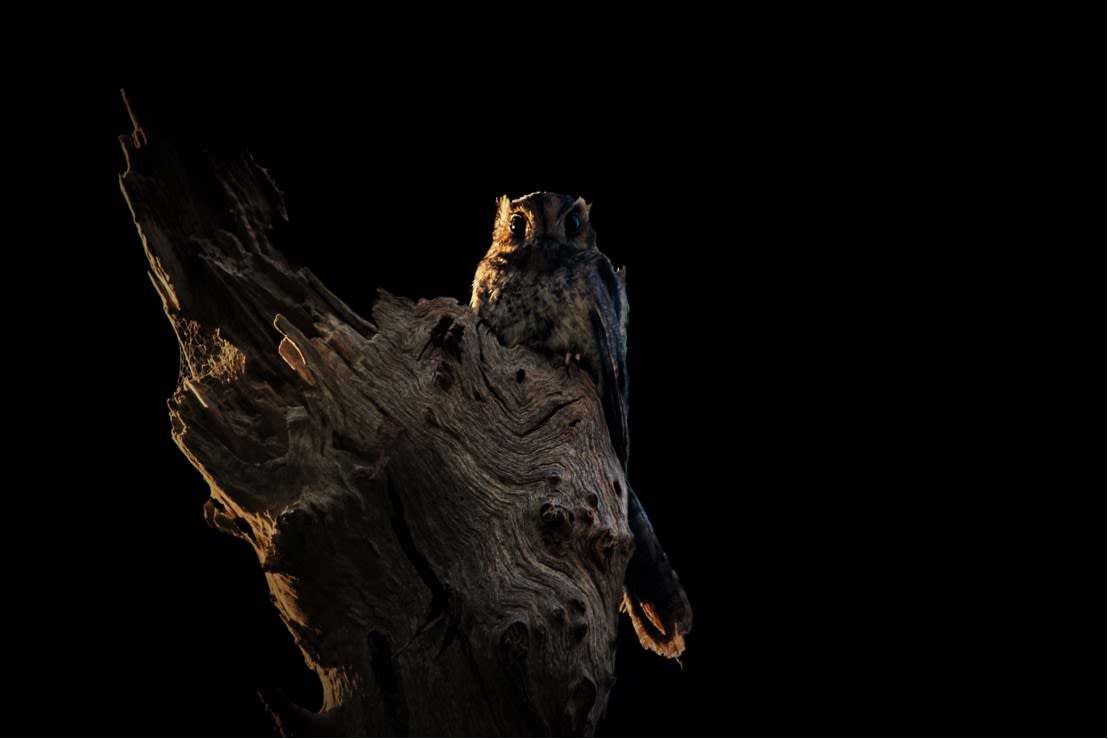
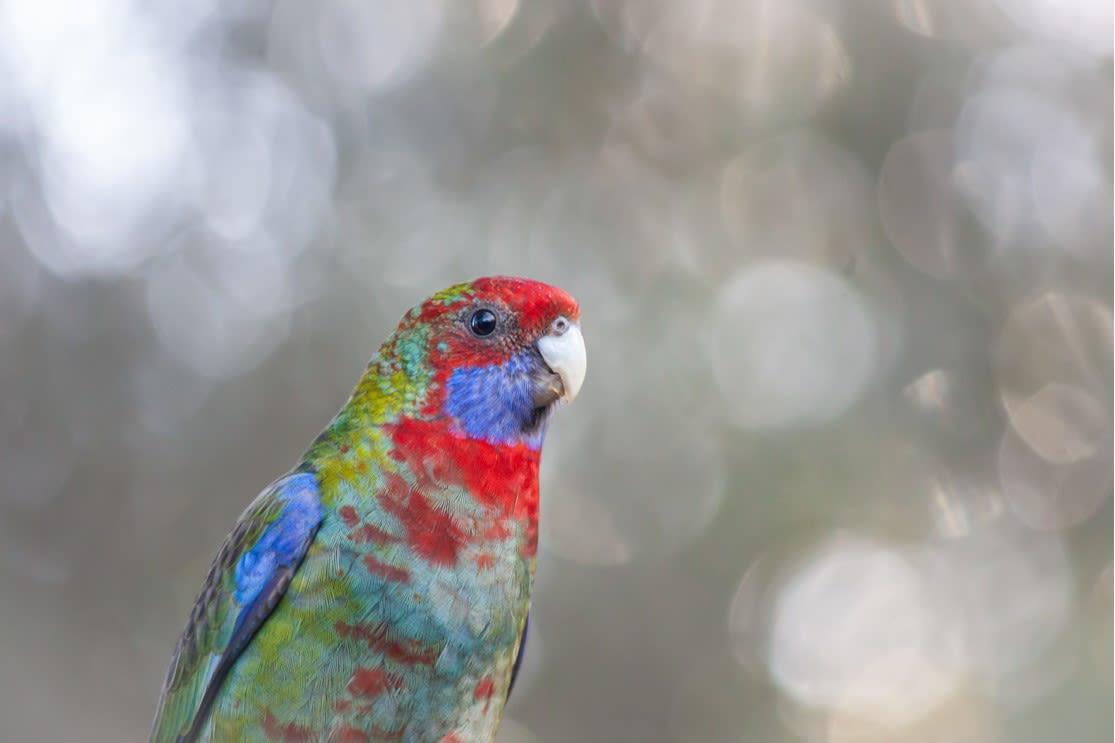
Australasian Darter; I particularly love shooting at golden hour because of the beautiful colours that come out!
Wood Ducks; I’ve had this pic in mind for a while and was stoked when I could execute it!
Superb Fairy-Wren; When I choose pictures after a session I look for different poses that showcase behaviour.
King Parrot; you don’t have to always travel too see birds, this was taken in my backyard!
Brush Bronzewing; This isn’t the type of photo you see everyday, but I love how it shows the beautiful colours of this bird.
Brown Thornbill; Photography is all about being creative and experimenting with light, colours etc.
Buff-Banded Rail; These elusive birds can be very hard to photograph as they are quite shy, but occasionally can be seen feeding on open grass.
Australian Owlet Nightjar; these owls are quite small and often heard before seen.
Crimson Rosella; This particular Rosella visits my bird feeder often and you can see he is starting to get his beautiful crimson plumage
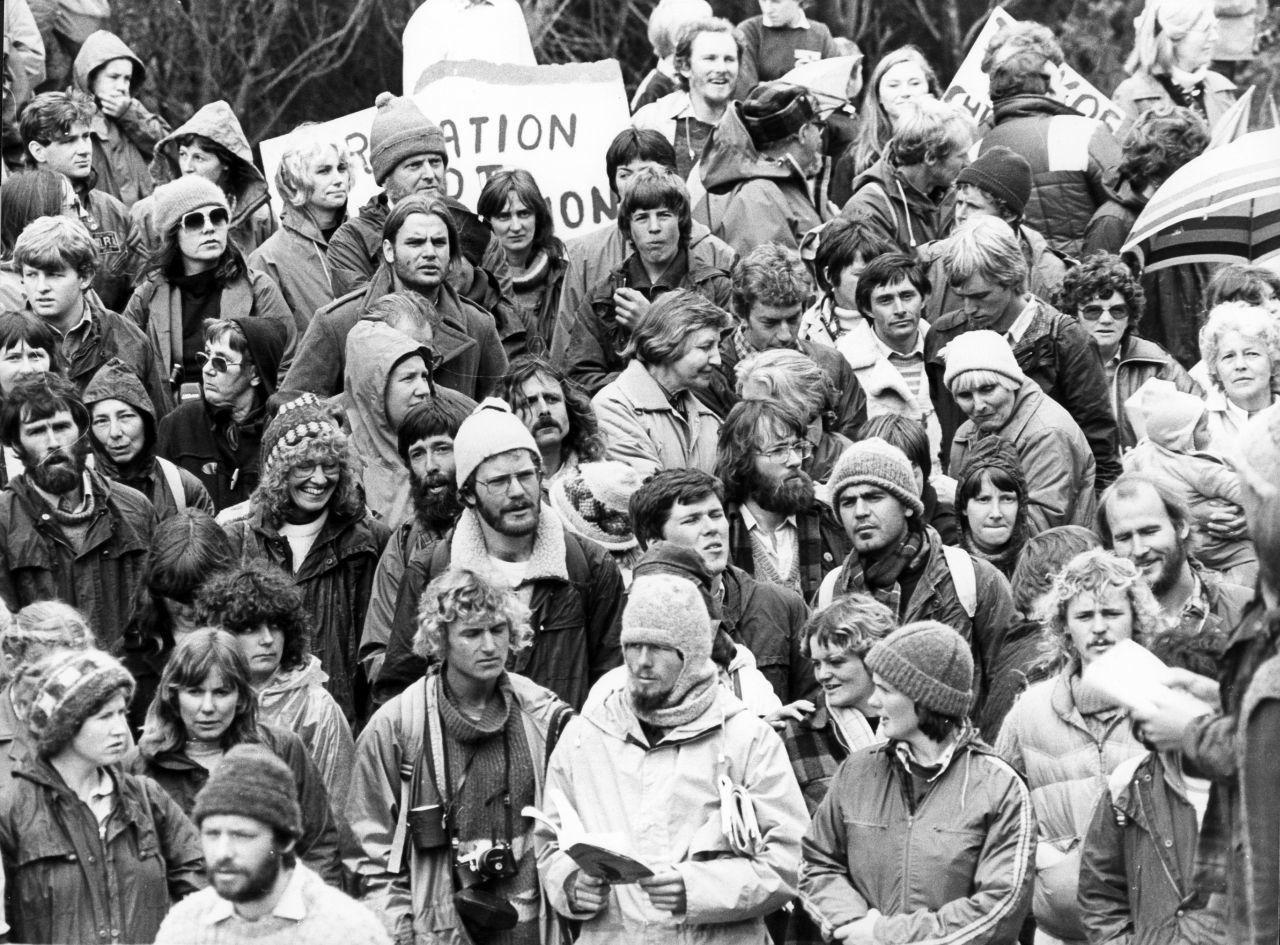
If you have a story about anything that may have appeared in the old Journals above, or anything from your own archive to share, let us know by sharing your experiences.
And if you haven't signed up to have the Journal delivered to your inbox once a month you can do so here.
We recognise First Nations as the custodians of land and water across the continent of Australia and pay our respects to Elders past and present. We acknowledge sovereignty was never ceded.